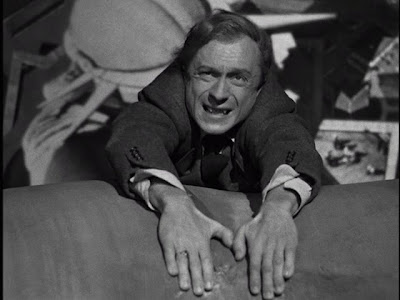 Jeff Bridges's performance in Crazy Heart (2009) seems more like that of Hank Williams, Jr. in The Hank Williams Story or Willie Nelson in Rambling Rose dragged on screen to play some variation of themselves than that of a long-time movie actor.
Jeff Bridges's performance in Crazy Heart (2009) seems more like that of Hank Williams, Jr. in The Hank Williams Story or Willie Nelson in Rambling Rose dragged on screen to play some variation of themselves than that of a long-time movie actor.Perversely, like those non-actors, Bridges is most authentic when he is on the bandstand, singing and picking; less so when he is playing the roistering old road dog we've seen in The Wrestler and Tender Mercies and Walk The Line and every other "washed-up middle-aged guy in search of redemption" movie. That is pretty old stuff, and aside from the quirky presence of Maggie Gyllenhaal, there are no surprises to be found there.
So the first hour of the film is authoritative and energetic and exciting and the second hour is devoted to the "going to the AA meeting, skipping the AA meeting, getting drunk, acting stupid, going back to AA" scenario that we have seen over and over. (Especially if you watch television as well as see movies.) Side note: Best use of AA meetings in a movie: You Kill Me.
The songs, written and produced by T Bone Burnett and Steve Bruton provide much of the energy, and the unbilled performance by Colin Farrell doesn't hurt. They seemed to be on their way to creating an American counterpoint to Once, in which the music forms an inseparable part of the storytelling.
But you know you're in trouble when they haul out Robert Duvall in the second half to do his gruff but loveable old coot turn that he has paraded around dozens of movies before. Bit by bit the originality and novelty of the film leaches away, and before it was over I found my mind wandering, trying to remember the names of every other movie with this story. (I can't believe they bothered to buy a novel to base the movie on--the plot could have been worked up by reading the backs of DVD covers during a quick trip to Blockbuster.)
At least it avoided a contrived ending. There's nothing wrong with the movie, but was it really necessary (other than the need for writer-director Cooper to launch his career)?





No comments:
Post a Comment